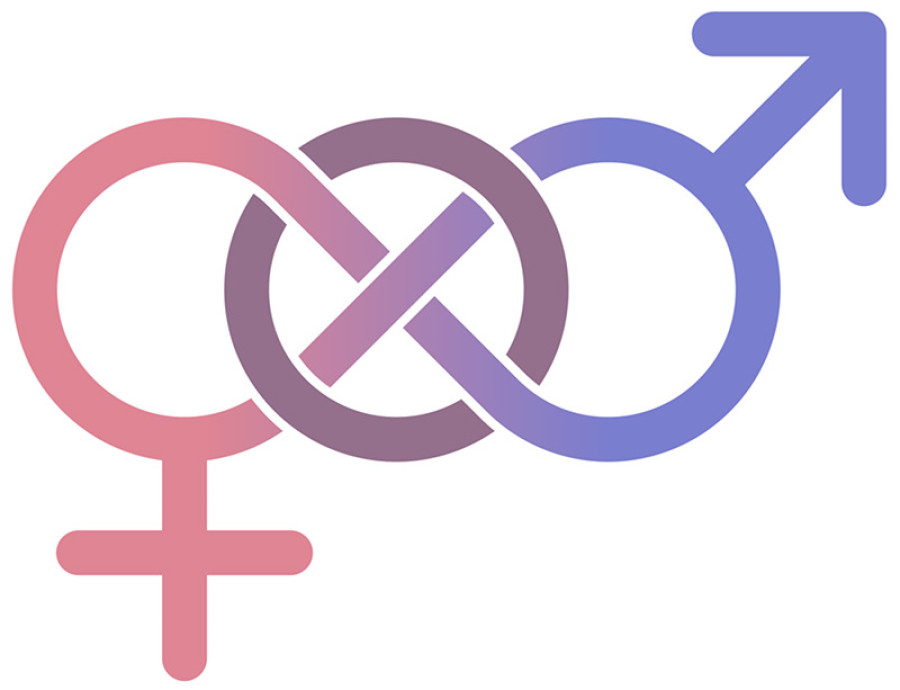Opinion
Women and men
Greater efforts should be made towards gender sensitisation to create a better society
Bina Jha
In order to create a gender-equal society, we need to start talking about gender sensitisation to make all stakeholders realise the importance of this highly sensitive topic. The constitution has clearly mentioned that all genders in society have equal rights. But have you ever given any thought to how gender-based violence still exists despite being made a punishable act? Why women and third-gender people face behavioural challenges in their daily life? This is due to a lack of sensitisation. Society has taught boys to be leaders and decision makers, and girls to be followers and dependent. But now, the times have changed. When people start realising the perspectives, needs and expectations of the opposite gender, society will move towards gender equality.
Gender sensitisation does not focus only on women’s comforts. It also explains the difficulties men face: How a man suffers when he is not able to earn, gets hurt but is not allowed to cry, and cannot give up something even if it is beyond his capacity. Gender sensitisation focuses on understanding each other’s strengths, weak points and limitations. The mandated representation of women by the constitution has brought women to the front. But does it guarantee their meaningful participation in Parliament? Will Members of Parliament listen to them sincerely?
Four months have passed since the local elections, but the community is still struggling for convenient services. Can women get served without hassles? People in authority need to answer these very important questions if there is to be gender equality in the true sense. In a gender-equal society, both men and women enjoy political, economic, social and cultural benefits and share responsibilities equally.
Sensitisation towards an issue is an important step in bringing about change. Since the abolition of ‘Sati Pratha’, Nepali society has adopted many changes towards gender equality, but there is still a long way to go. Society has huge expectations from the recently elected local governments, and they should make people feel the changes through sincere performance. Their language, behaviour and attitudes should be gender friendly so that service seekers can get service with dignity. Without being sensitive to the needs and expectations of a particular gender, how can an individual understand the opposite gender? And without understanding, how can one behave or act accordingly? The need for sensitivity has been felt across the world. To get a clearer picture, let’s discuss the subject point by point.
Why is gender sensitisation important?
- To narrow the gap between the state and citizens through improved delivery of services.
- To achieve the UN Sustainable Development Goal-5
- To evaluate the existing policies, rules, regulations and programmes to redefine gender roles and make necessary corrections.
- To replace bias with balanced behaviour.
- To formulate a gender friendly perspective and sensitisation process.
- To coordinate with government bodies to provide effective service.
- To contribute to the creation of a gender-equal society.
- To highlight the contribution of all genders for the development of society and the country.
What can be done?
As gender sensitisation is a social issue, it requires very careful handling. First, it is necessary to find out the real local change-makers. The existing practices with ‘tourist change-makers’ will not work anymore. Change-makers can be a person or a group of persons who know the language and culture of society by birth, such as local teachers, community leaders and youths. Second, research can be conducted to find out the level of understanding about the issues and materialistic and non-materialistic opponents. A readymade programme will not be effective because there is not one universal formula. Lastly, one should not forget that all social problems are directly or indirectly interrelated with each other.
So, in order to understand the issue or problem, one needs to be familiar with the circumstances. Proper knowledge and an approachable attitude is mandatory for gender sensitisation workshops. For example, teachers teach the matter in the course books, but unknowingly they also teach about gender roles, social justice and equality the way they see and understand them. That is why teachers should become aware of how their actions influence larger society. Participatory approaches for encouraging critical thinking about rigid and unequal gender roles might be effective to break false beliefs and promote gender equality. This approach encourages learners to acknowledge their understanding through drama, theatre, games, self-reflection and debates. Self-assessment tools also help to bring change for gender equality and a better society.
Peer mentoring approaches are also very useful which encourage young men to rethink their masculine identities and develop a positive attitude for healthy relationships. A three-pronged approach is required to bring the kind of quick change we are waiting for: The government should make the needful strategies for implementing and monitoring, the authorities should sensitise elected representatives and bureaucrats by enlarging their knowledge, and civil society should oppose the wrong treatment given by service providers. If these three actions can be carried out, we will not be very far from a gender-equal society where we can enjoy our existence with dignity.
- Jha is a sociologist




 12.62°C Kathmandu
12.62°C Kathmandu










